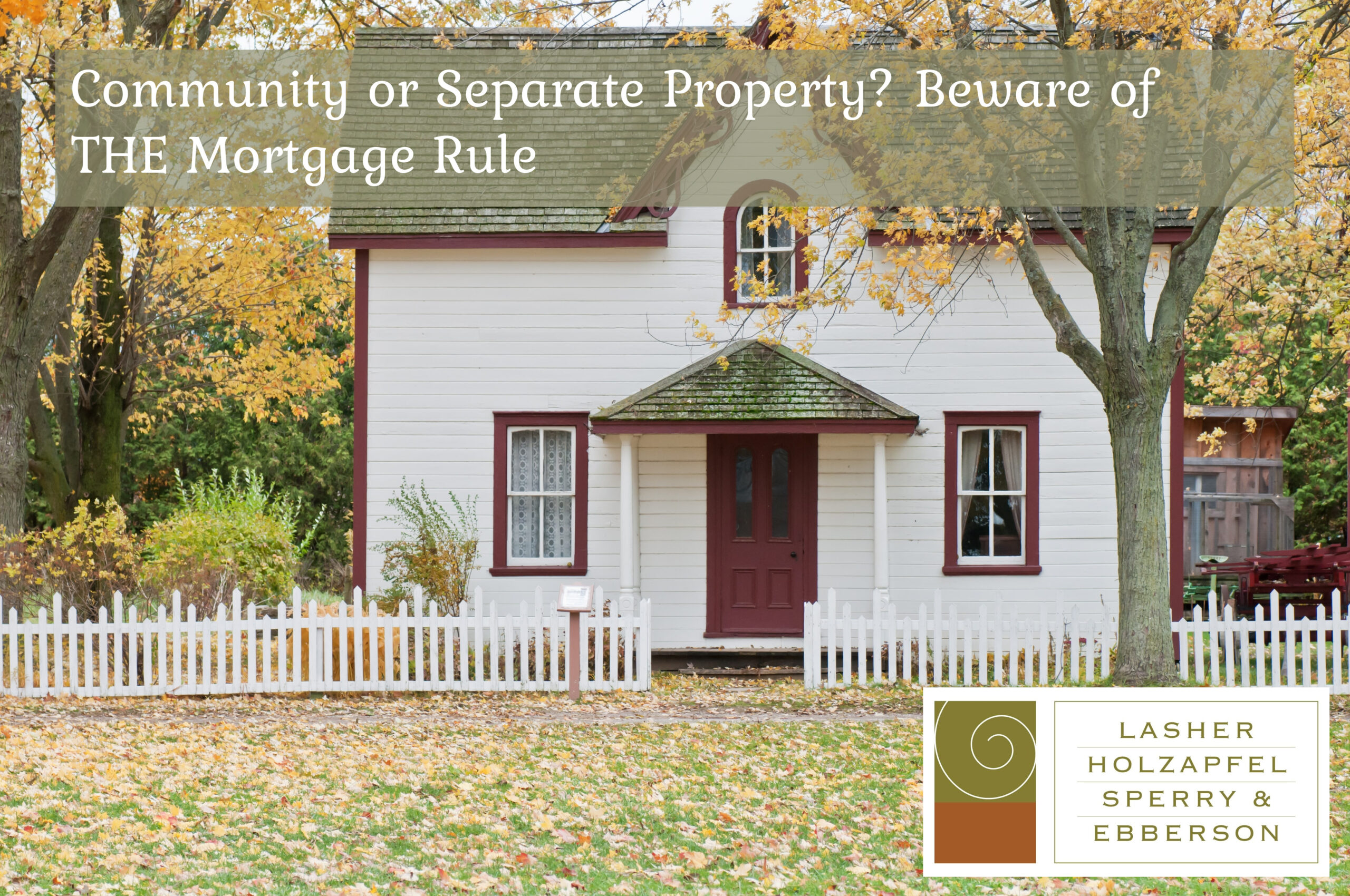Community or Separate Property? Beware of THE Mortgage Rule

Posted on November 4, 2022 by James Stensel
What you don’t know about your mortgage could hurt you. In Washington State, we are not a “title state.” Accordingly, placing your spouse’s name on the title of a separate real estate does not automatically make it community property. However, beware; if your spouse signs off on the mortgage liability associated with your separate property real estate, the result could be dramatically different.
Before determining the division of property in a divorce or legal separation case, “the court must first characterize the marital property as either community or separate.”[1] Property is characterized at the time title or ownership is acquired based on the character of the funds or credit used to purchase it.[2] Property acquired and owned prior to marriage is typically separate property and property acquired during marriage (except via gift or inheritance) is typically community.[3] Property retains its character as either separate or community, unless its character is changed.[4]
It is common for parties to own real property prior to marriage, and married couples also acquire real estate using a mix of separate funds and community lending credit (i.e., mortgages or bank loans incurred during marriage). Likewise, married couples often refinance separate property mortgages to cash out equity or obtain a more favorable interest rate during marriage. Even though a party may own a separate home with a separate mortgage pre-marriage, the refinance of that loan during the marriage can change the character of that property.
The ownership of the asset is determined by the character of the funds and credit used to acquire the asset. If, for example, an asset costs $100K, of which purchase price $25K in separate funds is paid and $75K is borrowed by the spouses, the asset is owned 25% by the separate estate and 75% by the community estate. This is known as the “mortgage rule,” which is a legal tool employed by Washington courts to determine the character of property acquired with both community and separate interests. The rule examines whether both parties were obligated to make payments on a mortgage to retain ownership of the property.
Absent a continuing obligation, the character of property is determined based on the ratio of separate and/or community funds used to acquire the property.[5] If the community pledges community credit, the asset acquired with that credit is typically community. If a mortgage that was originally separate is refinanced, and the credit pledged to retain ownership becomes community, the community acquires an interest in the amount and/or percentage pledged. In sum, if you intend to keep property separate during your marriage, being mindful about pledging community credit to acquire or retain that asset will ensure that property retains its separate character.
For questions about this, or other issues related to your dissolution or collaborative divorce, the Family Law Practice Group at Lasher is here to help.
[1] In re Marriage of Griswold, 112 Wn. App. 333, 339, 48 P.3d 1018 (Div. III, 2002).
[2] In re Marriage of Skarbek, 100 Wn. App. 444, 450, 997 P.2d 447 (Div. III, 2000).
[3] RCW 26.16.010 and RCW 16.16.030.
[4] In re Estate of Madsen, 48 Wn.2d 675, 677, 296 P.2d 518 (1956).
[5] In re Marriage of Zahm, 138 Wn.2d 213, 978 P.2d 498 (1999).

